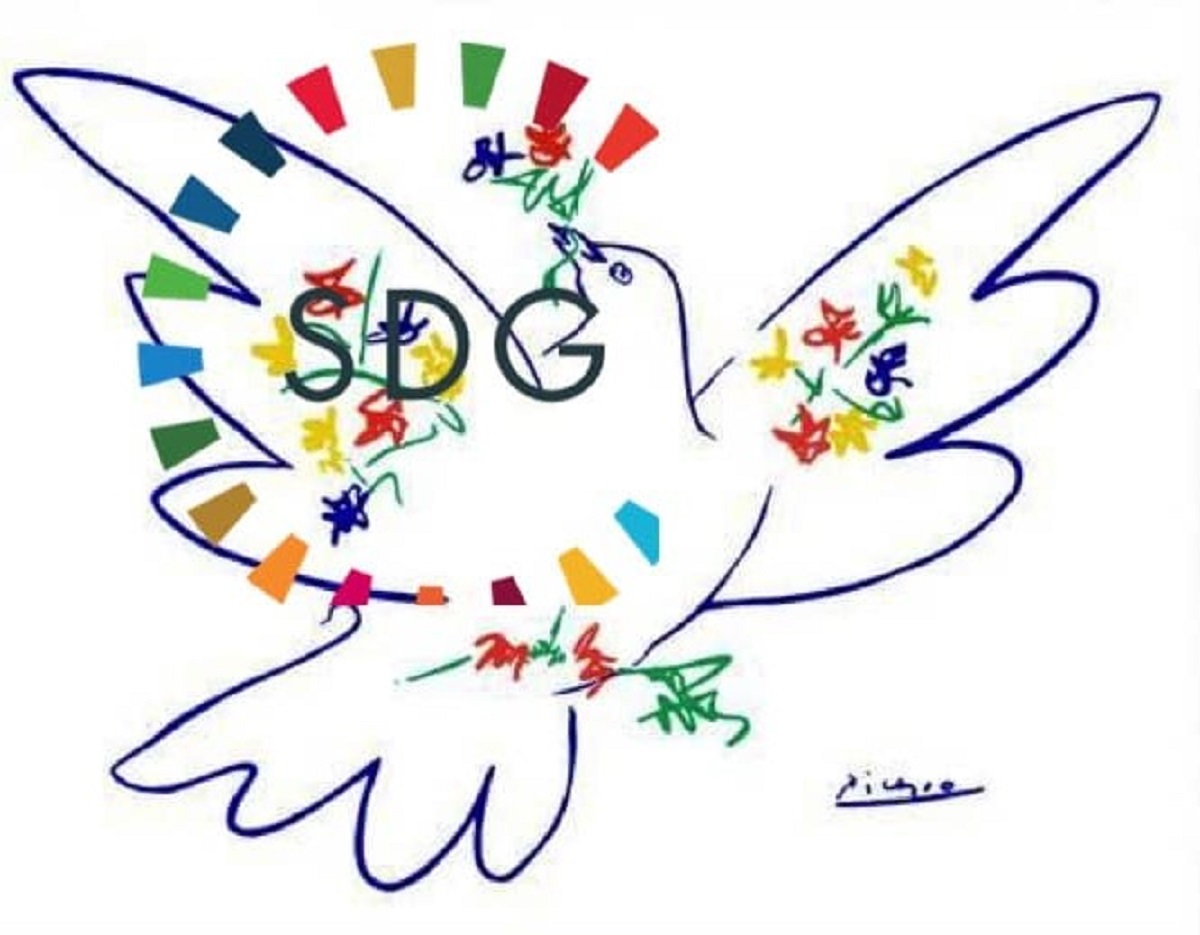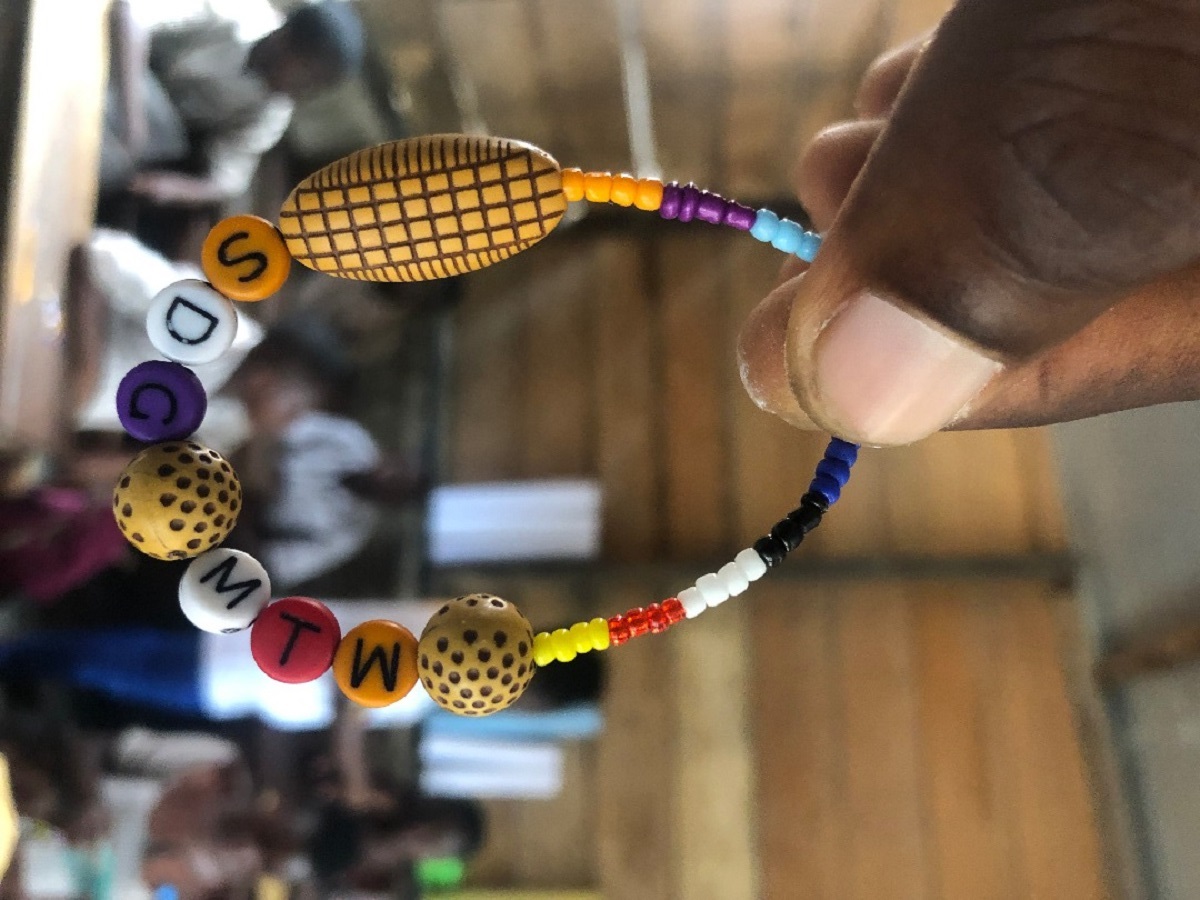Interview with Michou-Eymard Tchana-Hyman; Director of Global Citizenship – JUMP FOUNDATION
WHAT MICHOU DOES AT JUMP FOUNDATION
I oversee the social work that Jump does (jump impact). Jump foundation is a social enterprise that works primarily with international schools. They hire us to come and run programs and workshops for them, those are either on-campus (jump schools), sometimes happens off-campus (jump- experiences) take them on trips, take them out into the world. They pay us and then with the extra revenue at the end of the day after paying our bills we put money towards jump impact, which is similar kinds of leadership programmes, but for youth who come from communities which have been traditionally marginalized. We run these leadership programmes we call the Jump Leadership Programs in about 9 active partner locations where we run it around the world. Some in Asia, some in Kenya, some in North and some in Latin America as well. So we use experiential education to try and empower leaders from both ends of the socio-economic spectrum, so we work with quite wealthy young people in the international schools and we also try and work with young people who don’t come from families or communities that are not as financially sound.
Global citizenship plays a huge part in what we do in Jump Foundation. We work in a very international context; we work with a lot of people who don’t necessarily identify with location in terms of where they are from so this concept of global citizenship is really great for them. We have a diverse facilitator network, people facilitating from all over the world, every continent and it is kind of in our DNA. Global citizenship is incorporated into a lot of our programmes, we try to promote it as much as possible. At the moment we have two GC camps that are running, they are online (virtually) and it’s a week-long camp where students are learning about GC and talking with people all over. Right now some of the students are having a conversation with a young guy who is originally also from Cameroon but who grew up in New York and had an accident about 5 -6 years and ended up being paralyzed from the chest down in a wheelchair and has done a lot of modelling now. He has lived a very interesting life.
PERSONALLY, WHAT DOES IT MEAN TO BE A GLOBAL CITIZEN?
This is something I do think about a lot, so recently while I was thinking about this I bore it down to three words that I really feel embodies global citizenship. The first one I really believe is CURIOSITY, for me a Global citizen is somebody who is really curious about the world around and wants to learn what is happening around them; wants to learn what’s happening in the environment, in different communities and different places around the world and different kinds of people, different cultures. There is an element of curiosity that really drives Global citizens to try and understand the world around them.
The next quality that I really feel embodies Global citizen is RESPONSIBILITY and so I think Global citizens identify that there is a bit of responsibility they owe the world, whether that is an environmental responsibility in terms of making sure that they are trying to minimize their impact through their economic purchases, either waste management in trying to reduce plastic usage also responsibility to the community around them, their society, people in general. Whether that’s their local community or larger global community and that they have responsibility to support the people in their community, people around them, whether they know them or not.
The last quality that I think embodies global citizenship is RESPECT. There is this element of curiosity and responsibility but it is all rooted in a lot of respect. So respect for others, respect for yourself, respect for the planet. It doesn’t necessarily mean you agree with everybody, doesn’t necessarily mean you think everybody is right and people can’t do wrong, but how you engage with people is rooted in the element of respect. So for me, I really feel those three things embody what it means to be a global citizen.
WHICH OF THE SDGS DO YOU RESONATE WITH SO MUCH?
I have personally got a mixed relationship with the SDGs. So just coming from the world of Global citizenship education, SDGs are everywhere, everyone is always talking about the SDGs and I feel like it has gotten to the point where people feel like SDGs are synonymous to Global Citizenship and it is one and the same. But I actually feel very differently and that the SDGs are not necessarily what defines Global Citizenship, I think it is a great framework, it is a really easy and simplified framework that helps people to start thinking about social issues. I believe it is a little bit oversimplified, but I think there is pros to that, because the reality of social impact work is very complex, very intertwined and that can be very intimidating to engage with, especially when you are new to social impact and social issues, and seeing how complicated things are can be a distraction for people, so having a nice simple framework, I think is good it is a good start, but I don’t think it is everything, I don’t think the SDGs, the global goals are everything. Actually I try when I am designing Global Citizenship program touch on the SDGs a little, not have too much focus on them.
If you were to press me to pick a favourite, I will say probably two. The first one is partnership for the goals (SDG 17). I think social issues are systemic and the only way to really tackle them is through partnership and through thinking systems and the way that systems work and operate. The second one is number 10 – reduced inequalities, I think that is a nice blanket one, covers a lot of issues. That again, not looking at the different sub-goals and targets of the goal, but looking at the concept of reducing inequalities.
WHAT GOT YOU IN THE FIRST PLACE AND WHAT IS YOUR MOTIVATION?
There are two things for me. The first thing which is going to be true for anyone who works for jump, if you ask them, is the people. It’s the community and the people that you get exposed to while working at jump, it really is incredible. There is the idea of workplace and friends, it gets very blended at jump and we become really close friends with everyone you work with. People take care of each other and they support each other and they look out for each other. Whether you have worked together for years or whether you have worked together for a little bit on a program, there is a really strong bond between everybody in the jump family. It is a beautiful thing and pretty rare, I haven’t quite seen that anywhere else. So that is a huge attraction for me in terms of working at Jump, it’s the people.
The second is the work through jump impact, that was what really brought me back was the opportunity to step in and work with that. I believe that the model that we use for the Jump Leadership Program is a really powerful model that places emphasis on the communities that we work with, it is really much a backseat role that Jump plays in that model. So we work with these communities via a partner organization, we work with them we train them to run the model, we train youth in that community to run it. They put together conferences and workshops where they bringing together youth identified issues they see in their communities that they want to talk about, they have open communications, they come up with projects to address this issues. It is very youth focused and very youth driven programme, I just see a lot of value in that because I see it as very special. So that is what brought me back to Jump.
WHAT IS IT LIKE WORKING WITH DIFFERENT YOUTH FROM THE TWO ENDS OF THE SOCIO-ECONOMIC SPECTRUMS?
There is a huge difference in terms of working at the international school or working with the kids of the diplomats, very important [I don’t want to say important because everyone is important] but these are people who have very high expectation, everything is very controlled, everything is very sterile and everything needs to be at a certain level where the school believes is quality, not necessarily what I believe to be quality but it’s got to be to the school believes is quality. In that situation we are very much in a client relationship where we are servicing them and providing for their needs. The kids sometimes wanna be there, sometimes don’t want to be there, so it’s a little bit of a different attitude from the kids. Meanwhile, when we work with our jump impact partners, it is very much collaboration, it is very much a partnership where we create strong relationships with them to the point where we are friends, we create friendships with them. We co-create stuff together we build stuff together and it is very easy and relaxed, it feels mutually beneficial. All the youth we work with are so motivated, so creative they really want to be there, they wanna be there because they care about their community, they care about making their community a better place and it’s just incredibly inspiring. We also work with amazing partners who are doing great work in their communities and that is inspiring in itself. The jump impact work is so motivational for me and so inspiring.
ARE THERE THINGS WE CAN COLLABORATE WITH JUMP FOUNDATION GOING FORWARD?
I imagine that at this moment, especially given the state of the world and this pandemic, travels are at a halt, it’s been a bit challenging for jump in terms of a lot of our business relied on in-person workshops and in-person trips and those are all effectively put on hold for the next year while this pandemic sorts itself out. So we had to make a bit of pivot and now we are doing a lot of virtual facilitation and we are running virtual programs with people all over the world joining in. There are some really cool benefits with running virtual programs though.
I think that probably at the moment what would make most sense is some knowledge share. Looking at, okay what are some of the ways that MTW is developing global citizenship and what is the curriculum you are using and what can we steal from you and what can you steal from us. I would say some sort of knowledge share; some sort of curriculum share would make the most sense right now.
Interviewed by Celestine Chime
Get in touch with Jump! and Michou
Facebook: The Jump Foundation
Instagram: @Jumpfoundation
Instagram: @I_am_michou




